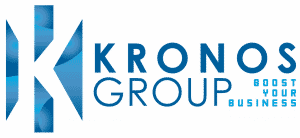Guidelines for adopting green procurement as a mainstay of your corporate strategy

Summary
In the backdrop of increased pressure on organisations to follow more strict policies in reducing emissions, cutting back on pollution and waste, as well as conserving resources to reduce the social costs of their operations, there is a great need to take strategic steps to cement green sourcing and procurement within corporate strategy.
By ensuring that these strategic undertakings are supported with tactical actions to support sustainability and greenification through procurement, organisations can ensure adherence to environmental guidelines as well as the long-term sustainability of operations through greener approaches to procurement.
Green procurement is the principle of choosing to purchase goods and services that have a lower environmental impact than conventional alternatives, at an organisational scale.
Adopting these principles as key elements of corporate strategy can help businesses reduce their carbon footprint, save costs, enhance their reputation, and comply with environmental regulations.
These practices not only allow organisations to reduce the social costs of carrying out business operations but can also allow them to reduce their financial costs when implemented practically and strategically to reduce energy costs and water consumption.
Read on as we discuss some key guidelines for adopting green/sustainable procurement practices as a mainstay of an organisation’s corporate strategy.
Strategic steps to cement green sourcing and procurement within corporate strategy
- Assess the organisation’s current procurement practices and identify opportunities for improvement
Adoption of green principles in procurement should be initiated with an evaluation of the current procurement practices of the organisation. This is carried out to identify areas where the organisation can reduce environmental impacts through its operation.
Tools such as life cycle assessment (LCA), environmental product declarations (EPDs), or eco-labels can be used in comparing the environmental performance of different products and services.
Organisations can also conduct a spend analysis to identify the categories of goods and services that have the highest environmental impact and potential for savings. This allows procurement leaders to focus on individual areas when achieving sustainable procurement goals.
- Set clear and measurable goals and targets for adhering to green principles in procurement
Setting clear and measurable goals and targets for green procurement that align with the organisation’s corporate strategy and vision should also be prioritised.
The procurement function can align its operations to sustainability frameworks such as the Sustainable Development Goals (SDGs) outlined by the UN, the Global Reporting Initiative (GRI), or the ISO 20400 standard on sustainable procurement to guide goal setting.
To establish a greater sense of direction and increase measurability, it can also be vital to benchmark your performance against industry best practices or competitors.
- Develop and implement a green policy for procurement functions along with an action plan
A green/sustainability policy in procurement is a document that defines the principles, objectives, scope, and responsibilities of sustainability efforts within the procurement function of your organisation.
It should be approved by senior management and communicated to all relevant stakeholders. A green action plan for sustainable procurement is a document that outlines the specific actions, timelines, resources, and indicators to achieve sustainable procurement goals and targets.
Organisations should ensure that these policies are regularly monitored and reviewed to ensure their effectiveness and rate of progress are satisfactory.
- Engage and train suppliers about collaboration toward sustainable procurement
The greenification of procurement functions requires the involvement and commitment of the organisation’s suppliers.
Organisations should engage and extend training to them on the benefits, requirements, and expectations of collaboration toward sustainable procurement.
Procurement leaders can use methods such as workshops, webinars, newsletters, or online platforms to raise awareness and share best practices. They can also provide incentives or better terms for suppliers who demonstrate good performance or innovation in green efforts aiding procurement.
- Evaluate and report on sustainability in procurement and its outcomes and impacts
For continuous improvement, it is important for organisations to evaluate and report on their sustainable procurement outcomes and impacts.
Both quantitative and qualitative methods can be used to measure the environmental, economic, and social benefits of the organisation’s green procurement activities in a more holistic manner.
Companies should also report on their achievements and challenges to internal and external stakeholders, such as management, employees, customers, investors, regulators, or the media.
Reporting on the greenification of procurement can help organisations demonstrate their corporate social responsibility, improve their image/reputation, and attract new business opportunities.
Tactical actions to support sustainability and greenification through procurement
A few tactical steps that can boost green procurement and enhance sustainability within organisations are as follows:
- Sourcing of energy-efficient appliances and equipment that have the Energy Star label or equivalent certification
- Opting for paper products that are made from recycled or certified sustainable sources and have low chlorine content or are chlorine-free
- Purchasing cleaning products that are biodegradable, non-toxic, and have low volatile organic compounds (VOCs) content
- Choosing reusable or compostable packaging materials that reduce waste and greenhouse gas emissions
- Selecting transportation services that use low-emission or alternative fuel vehicles or offer carbon offsetting options for cleaner logistics operations
Work with a partner specialising in procurement consulting to drive transformational green procurement initiatives in your organisation
Sustainable procurement is a significant undertaking for any organisation and requires careful planning and preparation.
Sustainability in procurement, however, is not only good for the environment but also good for your business and needs to be pursued in carrying out operations in compliance with stringent and ever-tightening environmental regulations.
By partnering with a specialist provider of procurement consulting and so much more, that possesses decades of knowledge and expertise in sustainable procurement within a wide array of industries, you can set the precursor for a successful green transformation of procurement in your business.




